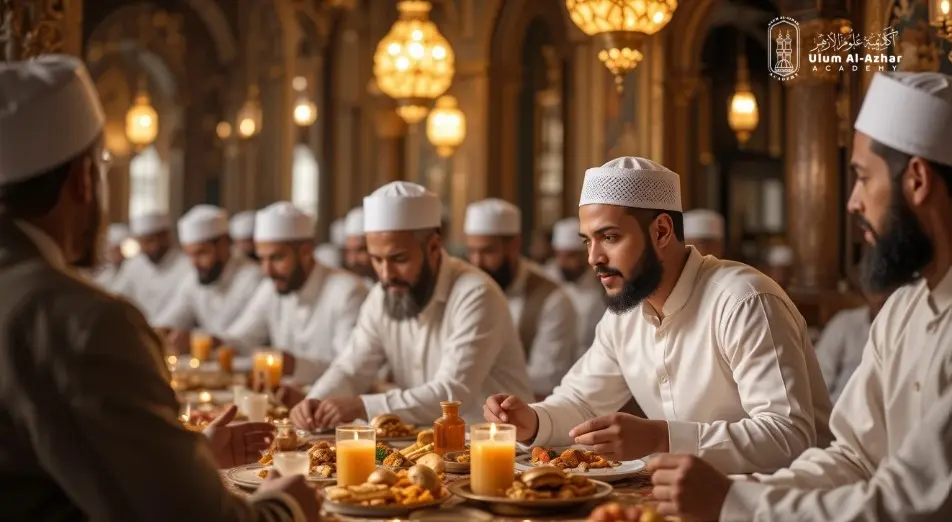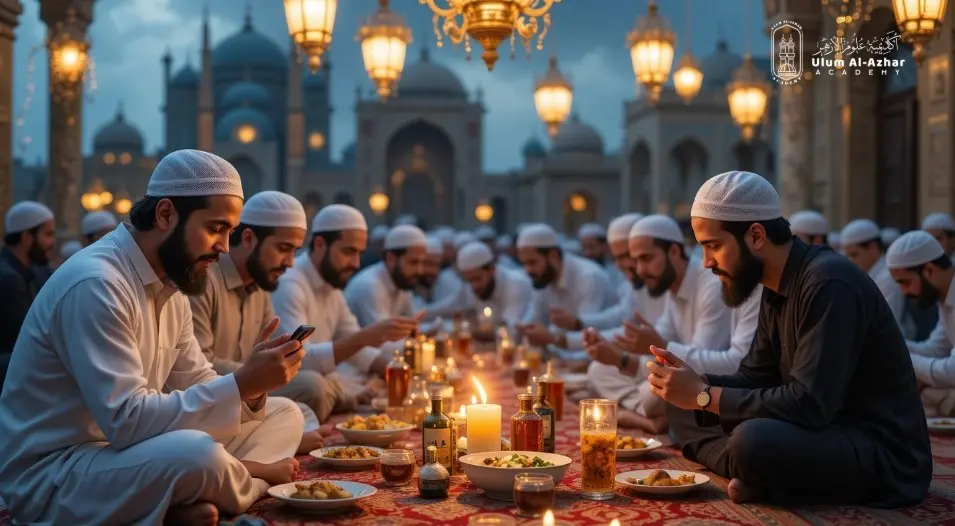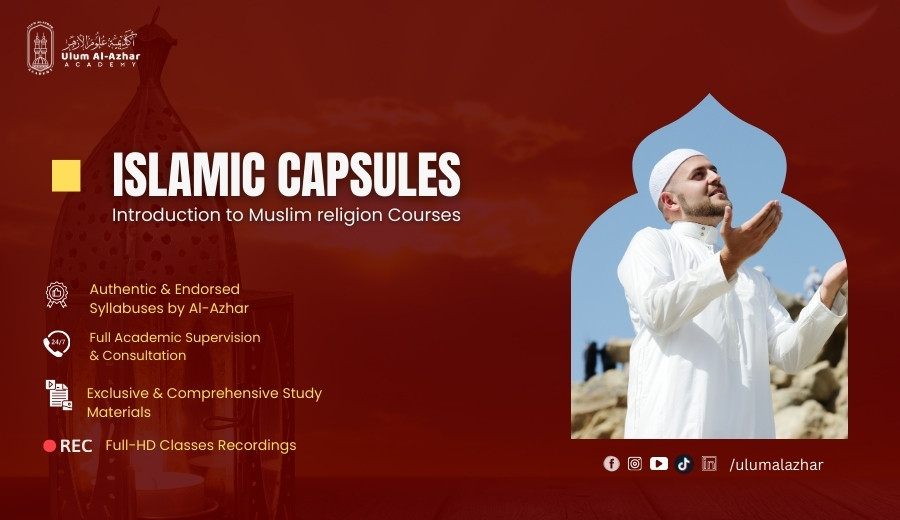
What Is The Ramadan? Understanding the Holiest Month in Islam
What is the Ramadan? Ramadan is a precious opportunity to grow closer to Allah, strengthen faith, and purify the soul. To maximize its spiritual benefits. We will explore the meaning of Ramadan, top acts of worship to perform and more, let’s get started!
The Meaning of Ramadan in Islam

What is the Ramadan in Islam? Ramadan, in Islam, is the ninth month of the Islamic calendar and the holiest month for Muslims. It is a period of fasting, prayer, reflection, and spiritual rejuvenation.
The term Ramadan comes from the Arabic root “رمض” (Ramad), which implies “scorching heat” or “burning”, symbolizing the burning up of sins due to fasting.
Unlock the beauty of the sacred months with our Sacred Months in Islam & Blessed Times course!
Why Is Ramadan the Most Sacred Month?
Ramadan is the most sacred month in Islam because of its tremendous spiritual, historical, and religious significance. Here are the reasons that make Ramadan the most sacred month for Muslims:
1. What is the ramadan? The month of the Revelation of the Quran
Ramadan is the month in which the Quran was revealed to Prophet Muhammad (ﷺ) as guidance for all mankind. Allah says in the Quran:
“The month of Ramadan [is that] in which was revealed the Qur’an, a guidance for the people and clear proofs of guidance and criterion. (Surah Al-Baqarah 2:185)
This has turned Ramadan into a season of heightened communion with the Quran through recitation, study, and reflection.
2. Fasting (Sawm) Is an Obligation
Fasting during Ramadan is one of the Five Pillars of Islam and a direct command of Allah. It purifies the soul, creates self-discipline, and brings Muslims closer to their Lord. What is the Ramadan? Ramadan is the month in which fasting is obligatory.
“O you who have believed, decreed upon you is fasting as it was decreed upon those before you that you may become righteous.” (Surah Al-Baqarah 2:183)
3. Laylat al-Qadr (The Night of Decree)
One of the last ten nights of Ramadan is Laylat al-Qadr, the most holy night of the year. Worship on this night is worth more than a thousand months (more than 83 years of worship).
“Indeed, We sent down the Qur’an during the Night of Decree. And what can make you know what is the Night of Decree? The Night of Decree is better than a thousand months.” (Surah Al-Qadr 97:1-3)
This is the night when Allah decrees the destiny of human beings for the coming year.
Explore the Fasting in Ramadan rules and their importance!
4. Gates of Heaven Opened, Gates of Hell Closed
What is the Ramadan? Ramadan is the month at which the gates of Jannah (Paradise) are open, and the gates of Jahannam (Hell) are closed. The devils are chained, so it is easy for Muslims to focus on worship and good deeds.
The Prophet Muhammad (ﷺ) said:
“When the month of Ramadan begins, the gates of heaven are opened, the gates of Hellfire are closed, and the devils are chained.”(Sahih al-Bukhari, Sahih Muslim)
5. More Reward for Good Deeds
All deeds of worship, prayer, and charity in Ramadan are multiplied in reward. It is a month of mercy, forgiveness, and freedom from the Hellfire.
The Prophet (ﷺ) said:
“Whoever fasts Ramadan with faith and seeking reward from Allah, his past sins are forgiven.” (Sahih al-Bukhari, Sahih Muslim)
6. Strengthening Taqwa (God-Consciousness)
Fasting helps Muslims acquire self-control, patience, and gratitude, and they become more conscious of Allah (taqwa). Fasting is a time of cleansing for the body and the soul.
Discover the fasting rules during Ramadan, and what is allowed and what is not!
Acts of Worship Recommended in Ramadan

What is the Ramadan? Ramadan is a month of tremendous blessings, and Muslims are encouraged to carry out various acts of worship to achieve maximum reward. The following are some of the most suggested acts of worship during Ramadan:
1. Fasting (Sawm)
Fasting from dawn (Fajr) until dusk (Maghrib) is the principal act of worship during Ramadan. It involves avoiding food, beverages, and ill deeds and engaging in additional acts of piety.
“O you who have believed, fasting has been prescribed upon you as it was prescribed on those before you that you become righteous.” (Surah Al-Baqarah 2:183)
2. Praying Taraweeh (Night Prayers)
Now that we know What is the ramadan, it is time to understand Taraweeh prayer. Taraweeh is an exclusive optional prayer recited subsequent to Isha in Ramadan. It is much recommended and commonly prayed in congregation at the masjid.
The Prophet (ﷺ) said:
“Whosoever stands for prayer in the nights of Ramadan in faith and in hope of reward, all his past sins will be forgiven.” (Sahih al-Bukhari, 2008; Sahih Muslim, 759)
3. Recitation and Reflection of the Quran
Ramadan is also the month of the Quran, and Muslims are urged to read, ponder, and understand its message increasingly. Numerous attempt to complete the Quran at least once during the month.
“The month of Ramadan [is that] in which was revealed the Qur’an, a guidance for the people and clear proofs of guidance and criterion.” (Surah Al-Baqarah 2:185)
4. Making Du’a (Supplication)
What is Ramadan? Ramadan is a month when du’as (prayers) are more readily accepted, especially during the time of Iftar, suhoor, and Laylat al-Qadr (The Night of Decree).
The Prophet (ﷺ) said
“Supplication of three is not refused: the one who is fasting when he opens his fast, the righteous leader, and oppressed person’s prayer.” (Tirmidhi)
5. Searching Laylat al-Qadr (The Night of Decree)
The most holy night of the year is Laylat al-Qadr, which comes in the last ten nights of Ramadan (more specifically, the odd-numbered nights). To worship on this night is better than a thousand months (83+ years of worship).
“The Night of Decree is more excellent than a thousand months.” (Surah Al-Qadr 97:3)
6. Giving Charity (Sadaqah & Zakat)
Charity done in Ramadan is greatly rewarded, and many Muslims like to provide their Zakat (obligatory charity) in Ramadan.
The Prophet (ﷺ) was most generous in Ramadan:
“The Messenger of Allah (ﷺ) was the most generous of people, and he was even more generous in Ramadan.” (Sahih al-Bukhari, 1902)
How to Make the Most of Ramadan Spiritually
What is the Ramadan? Ramadan is a golden opportunity to get closer to Allah, strengthen faith, and purify the soul. To make the most of its blessings, here are practical steps to strengthen your relationship with Allah this holy month:
1. Purify Spiritual Intentions (Niyyah)
- Begin Ramadan with a sincere intention to worship Allah only.
- Form spiritual commitments such as prayer enhancement, increased Quran recitation, and avoidance of sins.
“O Allah, make me sincere in my worship this Ramadan and bring me closer to You.”
2. Prioritize Fajr & All Five Daily Prayers on Time
- Prayer is the pillar of faith. Ramadan is the ideal time to build a strong Salah habit.
- Do extra Sunnah and Nafl prayers for extra rewards.
“Indeed, prayer prohibits immorality and wrongdoing, and the remembrance of Allah is greater.” (Surah Al-Ankabut 29:45)
- Use a prayer app or reminders to never fail to pray.
3. Improve Your Recitation & Reflecting of Quran
- Since Ramadan is the holy month of Quran, take out some time from your daily life to read it and know what it means.
- Read at least one Juz’ (section) each day to complete the Quran within Ramadan.
- Hear explanations (tafsir) to enhance your knowledge.
- Reflect on ways you can apply its teachings in your life.
“The month of Ramadan [is that] in which was revealed the Qur’an, a guidance for the people and clear proofs of guidance and criterion.” (Surah Al-Baqarah 2:185)
Keep a notebook where you jot down key lessons of the Quran.
4. Seeking Forgiveness and Repentance (Tawbah)
- What is the Ramadan? Ramadan is the best time to clean the heart of sins and seek the mercy of Allah.
- Inseparably say “Astaghfirullah” (I ask forgiveness of Allah).
- Make sincere du’a to pray to Allah to forgive earlier sins and guide you on the straight path.
The Prophet (ﷺ) related:
“Whoever fasts in Ramadan with faith and for the sake of reward, his earlier sins will be forgiven.” (Sahih al-Bukhari, 38)
- Write a list of what you’d like to change spiritually regarding yourself and attempt to enact them over the course of Ramadan.
5. Recite Taraweeh & Attempt Laylat al-Qadr
- Attend Taraweeh prayer at the masjid or read it at home.
- The last ten nights are critical! Step up worship in search of Laylat al-Qadr, better than a thousand months.
“The Night of Decree is more superior to a thousand months.” (Surah Al-Qadr 97:3)
- On odd nights (21st, 23rd, 25th, 27th, 29th), stay up and offer Tahajjud, recite Quran, and make du’a.
Unlock the blessings of sacred times in Islam!
Join our Sacred Months in Islam & Blessed Times course to discover the significance of holy months, special seasons, and the ways to maximize barakah in your life. Don’t miss this opportunity to deepen your connection with Allah and remember the Days of Allah! Enroll now and make the most of these divine moments!

Conclusion
Now we know what is the Ramadan, Ramadan is a month of transformation. By setting clear goals, increasing worship, and purifying the heart, we can leave Ramadan spiritually stronger.
Book a free Consultation session and start learning!
FAQs
Why do they celebrate Ramadan?
Muslims celebrate Ramadan to honor the month in which the Quran was revealed, to fast for spiritual growth, and to seek forgiveness, mercy, and blessings from Allah.
What can’t you do during Ramadan?
During Ramadan, Muslims cannot eat, drink, smoke, or engage in sinful behavior from dawn until sunset.
Tag:10 importance of Ramadan, 10 Sentences about Ramadan in English, Can you drink water during Ramadan, How long is Ramadan, Ramadan 2025, Ramadan rules, What are the rules of Ramadan, What is Ramadan and why is it done, What is Ramadan do they eat, What is Ramadan in Islam, what is the ramadan, What month is Ramadan, Why is Ramadan important
